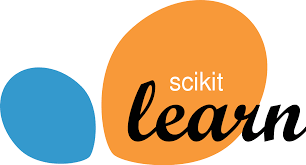Hello Everyone! This is my first blog in my personal website. since I have gotten many request and queries on how to start learning data science , I have decided to write this blog in much more practical way.
This blog will guide you in terms of what are the fundamental concepts to be learnt in the initial stage . If you learn these foundational skills it will be really helpful for you to build advanced skills in data science.
Data Science Starter Kit
Month 1 – Foundation phase
In the month 1 , concentrate more on listed foundational concepts. second month onwards we will start learning intermediate topics such as regression analysis , classification , time series forecasting
Tech – 1 : Python programming language
Tech – 2 : SQL and EXCEL
Math -1 : Statistics and Probability
Business -1 – Understanding applications and case studies of Data science across different domains
at the end of the first month , you will be having fundamental idea about what is data science , how to handle data , how to visualize data , how to manipulate and get findings from the data. Try to cross learn the concepts and practice the statistical lessons using python or excel. In this stage you will get the skillsets for becoming a data analyst / Business analyst role
Month 2 : Statistical and Machine learning algorithms
Math -1 : Introduction to Statistical learning and Machine learning
Tech stack to be learnt – Month 2
Learn and Practice the following frameworks along with the listed algorithms
Benchmark Problems to practice :
Practice Regression , classification , clustering , forecasting problems using benchmark datasets
- Flower species classification – Iris data set
- Boston House price prediction – Boston dataset
- Clustering Different wine categories
- Time series forecasting
Kindly Don’t restrict with the algorithms explore more datasets and practice listed algorithms. learn like a machine ( i mean learn from your errors)
Month 3 : Projects and Portfolio Development
Based on the Learnings from the first 2 months , start building your own projects based on your own design.
Manage your projects in github , use online platforms like kaggle , colab for practicing and working along with the data science community
Start participating in the coding , problem solving competitions in online platforms like leetcode , hackerrank , hackerearth , techgig, analytics vidya,analytics india magazine
Create your portfolio with Various projects from regression , classification , clustering ,forecasting problems .
Prepare a data story flow deck and present them along with your portfolio
start applying for internships or jobs
Never stop learning – continue to learn advanced algorithms and methodologies
Implement the algorithms to serve a purpose / solve a problem in a Retail/Pharma/Banking/CPG/Telecom domain.
This will help you to integrate your business , tech and math skills .
Happy learning – I Hope this blog helps you
Thanks for Reading.






It’s really awesome. It really very helpful for beginners like me. Thank you.
LikeLike